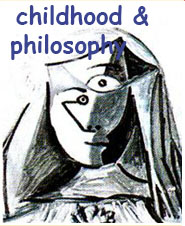pedagogical mediation and imagination in early childhood education
DOI:
https://doi.org/10.12957/childphilo.2018.27812Keywords:
imagination, childhood, pedagogical practicesAbstract
Reflections on the imaginative manifestations of children and the ways in which they are/ can be worked out in educational contexts are of great importance because they canderive various contributions to pedagogical work and consequently to child development.In this field, the following questions are relevant: Is the daily routine organized by theeducator for children rich and challenging? Are there invitations to the manifestations ofthe children regarding the routines, the times and the spaces instituted? Is the educatorcapable of a sensitive listening and an attentive look at these manifestations? What dochildren produce in the actions and interactions that occur there is linked, in a powerfulway, to the sphere of the imagination? In general, the answers to these questions arenegative. For this reason, the group that developed the research and the pedagogical workcarried out by their teacher was considered an instigating field and object of investigationbecause they represent atypical forms of valuing the children's imaginative capacity. Thepurpose of this work is to identify mediations in the teacher-child relationship thatsupport in different ways, the development of the imagination (within a historical-cultural perspective) and highlight aspects of the structure of daily education, prioritizing
possibilities of choice by children as an important condition in this field.
Downloads
Download data is not yet available.
Downloads
Published
2017-12-19
Issue
Section
articles



